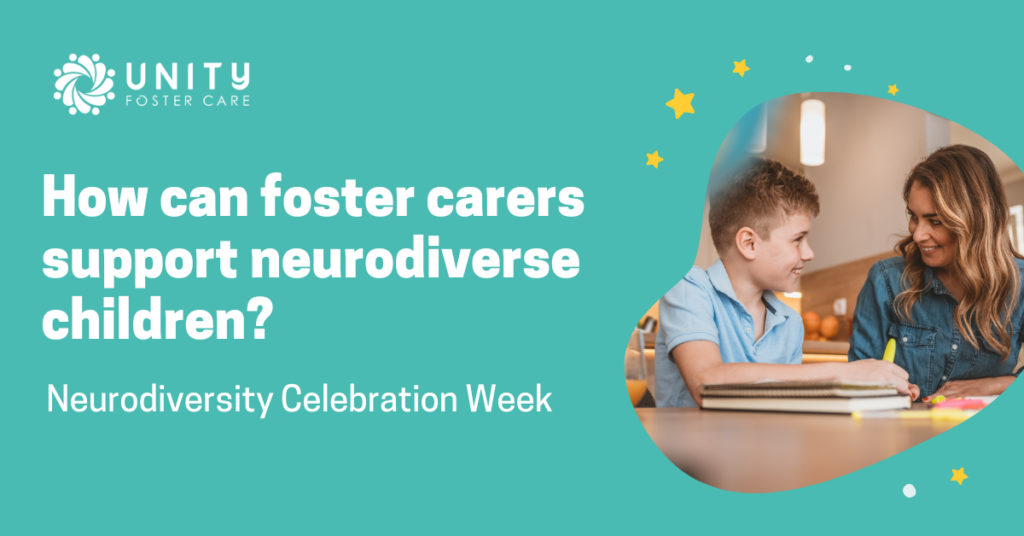How can foster carers support neurodiverse children?

It’s Neurodiversity Celebration Week, which is all about challenging misconceptions.
Approximately 15-20% of children and young people in the UK are neurodivergent*, which is why celebrating differences is so important. Neurodiversity encompasses a broad spectrum of neurological variations, including autism, ADHD, dyslexia, dyspraxia, and more.
Depending on the individual circumstances, foster carers may come across neurodiverse children and young people in a range of fostering types, from short-term to specialist fostering (specialist fostering is for children with more challenging needs). By embracing neurodiversity, foster carers can create a supportive environment that respects each child’s individuality, helping them thrive and reach their full potential.
In this blog post, we explore practical strategies that foster carers can implement to provide the best possible care for neurodiverse children and young people.
Individualised care and support
Foster carers should tailor their caregiving approach to meet the specific needs of each foster child with neurodiversity. For example, a child with autism may benefit from structured routines and clear communication methods, while a child with ADHD may require strategies to help them stay focused and organised. At Unity Foster Care, our carers have 24/7 access to a supervising social worker, for additional support and advice.
Creating a nurturing environment
Create a supportive and nurturing home environment where foster children feel valued and accepted. For instance, providing a calming sensory space for a child with sensory processing difficulties or offering quiet time for a child with ADHD can help them feel safe and secure.
Inclusive activities and learning opportunities
Ensure that foster children with neurodiversity have access to inclusive activities and opportunities. For example, providing alternative learning materials for a child with dyslexia or offering sensory-friendly outings for a child with autism can promote their engagement and enjoyment. Foster carers can also incorporate life skills development into daily activities and routines to empower neurodiverse children to become more independent and self-sufficient. This may involve teaching practical skills such as cooking, budgeting, time management, and self-care, tailored to the individual strengths and needs of each foster child.
Continuing education and training
Foster carers should stay informed about neurodiversity. Understanding effective communication strategies and behaviour management techniques specific to neurodiverse children is essential for providing optimal support. We ensure our foster carers have access to full training and unparalleled support.
Collaboration and support networks
Foster carers can benefit from building relationships with other foster carers, support groups, and professionals specialising in neurodiversity. Collaborating with support networks can provide valuable resources, guidance, and emotional support tailored to the needs of each foster child. We provide regular opportunities to meet like-minded foster parents in Yorkshire and the North East.
Supporting children looked after with neurodiversity requires compassion, patience, and a commitment to learning and growth. By implementing these strategies, foster carers can create a nurturing environment where children and young people with neurodiversity feel supported, valued, and empowered to thrive.
Did you find this blog helpful? Why not read our blog ‘Nurturing Resilience: A Guide for Foster Carers’?
Our friendly team are on hand to answer any questions you may have. To make a start on your application, call us on 0333 772 2333 or contact us online and we’ll be in touch.
